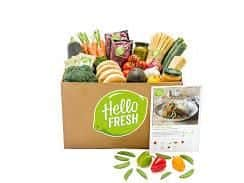Subscription services expanding into everyday items


The research found that social media campaigns are the top way to attract new customers for “direct to consumer” (DTC) brands.
Subscription services are now available for almost every type of product, including items such as sports leggings, where consumers pay a certain amount a month to be allowed to purchase popular brands such as Fabletics.
Advertisement
Hide AdAdvertisement
Hide AdIn the UK, price and product quality continue to play by far the most important role in driving a purchase, the survey found, with 71 per cent and 50 per cent of people respectively citing them as an important factor when choosing a subscription. However, a brand being ethical and sustainable also now rank among the top demands among consumers looking to buy from one of these younger, aspiring brands - although ethical concerns are more important for customers elsewhere in Europe than in the UK.


Anthony Capano, managing director of Europe, the Middle East and Africa at Rakuten Marketing, which carried out the research, said: “Now these DTC brands have become successful international businesses, they will encounter rising pressure to act as ‘good global citizens’.
“Legacy brands like Waitrose have very effectively leveraged consumer interest in sustainability across the media with attempts to minimise packaging. This is certainly an area that could put DTC brands – many of whom rely on packaging and transporting each product individually - on the back foot.”
The research found that while roughly a third of consumers state social media campaigns and affiliate sites such as voucher and coupon websites are among the most effective in raising their interest in DTC brands, ones which have been endorsed by consumer publishing sites such as MoneySavingExpert also prove popular. The study found around one in ten consumers are most likely to click and buy from a DTC brand mentioned on such a site.
Susan Dunnett, senior lecturer in marketing at University of Edinburgh Business School, said: "Time is now the ultimate luxury and it is no surprise that consumers are looking to marketplace for time-saving solutions. Subscriptions mean that consumers can have products delivered directly without having to seek them out.
"Subscription could be a good option for the consumer to buy brands they are loyal to and they know they will use week after week, month after month. However being locked into long term arrangements with a brand limits choice."
She added: "Subscriptions won’t be for everyone; some shoppers will always want to see what they are buying upfront and find the best price. It also won’t work for consumers who are price sensitive rather than brand loyal. Shopping is an important social interaction which consumers value, especially with their local shops."
The number of products available in the UK on subscription has rocketed in recent years as more consumers chose to buy the services - costing between £5 and around £40 a month depending on the products - either for themselves or as a gift. A recent report from the Royal Mail found that a total of £583 million is spent on gifting – and “self-gifting” – subscription boxes every year.
Advertisement
Hide AdAdvertisement
Hide AdOne of the first boxes to launch in the UK was Graze, which started delivering snacks to offices in 2008. Now, however, a growing number of companies offer boxes containing monthly coffee supplies, trial size beauty products and even custom-selected clothes.